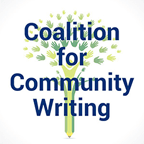Call for Submissions
Coda: Community Writing + Creative Work is a section of CLJ dedicated to supporting writers who are involved in projects relating to community engagement and activism, to preserving the work that ensues from community writing projects, and to expanding the kinds of writing published in academic journals. We invite creative work in any genre in Global Englishes and ask that it is accompanied by a personal reflection that tells how the piece came to be. Please visit our submission site for more information at https://sites.google.com/lafayette.edu/cljcoda/home

